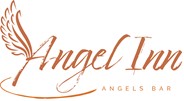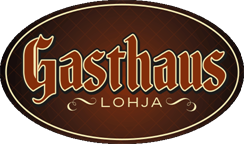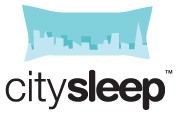Hoteliers need to learn how to become better at influencing the booking behaviour of their customers, to ensure that they book their rooms instead of a competitors.
To do this, you’ll need an understanding of the customer journey, how your leisure travellers and corporate guests reach a decision to book your hotel, a mixture of emotional and rational reasoning.
It’s easy to assume that customers are making their booking selection based on finding the cheapest room, motivated by price. But in fact, each prospective guest goes through a decision making process, a “customer journey” with different touch points or stages.
Each stage in this journey provides a unique opportunity as an operator to influence the buyer’s final decision, when at that one moment in time that they are ready to buy known as the “moment of truth”– that they have your hotel or brand front of mind.
If your marketing activity has one goal, it’s to reach an audience at that one moment in their buying journey when there is an opportunity to influence and exploit these "moments of truth".
In today's new digital world simply attracting a high volume of traffic to your website is not enough. The digital transformation of the customer journey, especially in the travel sector has enabled and empowered buyers to change how they digest information.
Digital marketing has more responsibility now to educate and qualify visitors when they arrive on a website, to recognise what stage they are at in their customer journey - just looking for holiday ideas or wanting to book a room.
Not only does marketing need to attract prospective customers (leads) and make them aware of your hotel - especially if you are competing in a difficult market, but operators need to be aware that visitors often arrive on your website far later in their customer journey that they have ever done before.
The proliferation of the internet and social media, often means that your website visitors are fully informed and have all the information they need, so you now need to adopt a more buyer-centric approach, a listening mode that enables you to tailor your offering to the needs of the buyer.
Adopting a broad rather than a targeted approach to how you communicate with your audience shows that you don’t really know much about them. And it is so easy for customers to filter out the marketing noise, preferring in some cases to source word-of-mouth recommendations and referrals rather than digesting what information is on your website.
So, at this early stage of the customer journey, for your property to get on the ‘radar’ it needs to have started to develop awareness, building on the underlying unique selling points that can be leveraged to make your property stand out from it’s competitive set.
The basics of Lead Generation
Lead generation is the process of attracting, engaging and converting visitors that arrive on your website into leads, those that are showing an interest in your property.
Lead nurturing tactics help your property to move your leads along and through their customer journey.
In today’s tough marketplace, lead generation is an effective strategy to create demand and extend the reach of your marketing messages.
Through a lead generation programme your business can collect information and contact details in order to engage and nurture them along the sales funnel toward a purchase - could be a room night, a meal or may be a spa break.
A new customer journey and the changing sales funnel
Generating awareness for your corporate brand or independent hotel is designed to attract leads into the top of the sales funnel, to start a prospective customer’s journey down the funnel and make a purchase. Where hopefully they book directly with you, using the booking tool integrated into the website or contact or call your property directly at the front office.
The problem with much of the sales funnel conversation is that it describes a funnel with a definite end - buy or not buy. If you don't buy, you must be either stuck in the middle or have fallen out of the bottom.
A common mistake is to assume that if a visitor doesn’t progress from one stage to the next that they must have dropped out and disappeared.
Moving from one stage to another in the sales funnel, entering and leaving at different points, is contrary to the idea of a traditional funnel - which has only two openings, one at the top and one at the bottom and fails to track any leakage of those that leave but may return.
Today, visitors to your website are moving across multiple devices and channels, as they jump into and out of the funnel, behaviour which has changed with the customer journey now becoming predominantly digital.
In the same sales funnel you’ll have visitors entering part way through the funnel, some will exit early, some will skip stages, and others will engage multiple times at the same stage - all in a non-linear way. There are as many different customer journeys in the funnel as there are buyers.
Content marketing and storytelling
To entice potential customers it is important to be able to create content that tells the story of your hotel, what makes it different and why a prospective customer should stay with your property.
One of the major disadvantages of focusing on price as a marketing tool is that it is very easy to drop your prices when times are hard, but extremely difficult to raise them as conditions improve.
Typically guests get accustomed to a particular price point and will resist your efforts to increase rates, especially if that was their primary motive to select your hotel in the first place.
What is extremely valuable about developing content is to tell a story around your brand and your hotel. Price can always be copied but it is very difficult to copy the emotions of a strong story. Each property has a unique story to tell, one that can evolve and grow over time and builds on the emotions of your guests.
An emotionally engaged and satisfied guest is far more likely to accept when the time comes that you need to increase your rates and be loyal even if competitors are pushing price as a reason to stay with them.
Educating and informing the visitors to your website by publishing interesting content will be a far more effective tactic that continually pushing price promotions and deals. And it will in the long run help your property to stand out because it develops an identity, something guests can relate to.
For those prospective customers that visit your website and already knows the basics, they want to hear the "Why they should buy your experience - what makes you stand out and how does it meet their needs"?
The need for creating buyer personas
A buyer persona is a semi-fictional character created as a picture of an ideal customer.
With clear insights on what the motivations to buy are of a particular audience, it’s far easier to craft messages that resonate with those potential buyers.
If you create your ideal buyer’s profile, you will find that you’ll have multiple profiles of guests, from the corporate stayers, to weekenders to meeting delegates, etc.
So, develop your profiles with some common traits and motivations and then create individual profiles with specific details rather than a “one size fits all” approach to communication which will fail.
It does not make sense that the guest booking a wedding event has the same motivations as the person booking a Sunday night stay for a business meeting in town. They both book because your hotel has a great reputation, known for wonderful guest experiences – but one books because you have an expansive grass lawn perfect for a marquee and the other because you are located 5 minutes away from the convention centre.
By building a full, personalised picture of your prospective customer and identifying the different steps in their customer journey, you’ll be far more effective with your digital marketing activities and know when those “moments of truth” will occur for you to take advantage of.
A great direct online booking experience
With prospective customers getting their first information about hotels online, property owners can now no longer ignore the need for an integrated online booking engine to be able to control the overall booking experience for their property.
It is far more effective to be able to manage the interaction directly with your guests so that you can build a relationship and control the message they see rather than having a third-party manage that.
Happybooking have always focused on creating a user-friendly property management system based in the cloud that can help property owners improve their revenue performance with a direct booking engine, generating increased profit margins by lowering commission costs and reducing admin time.
So, take a quick tour to see how it works - click here.
Our guest blogger is John Kennedy.
John is a hospitality consultant, dedicated to helping increase profits through marketing, revenue management and efficient operations and can be found at https://kennedy.marketing/
Image source: Modestas Urbonas on Unsplash



